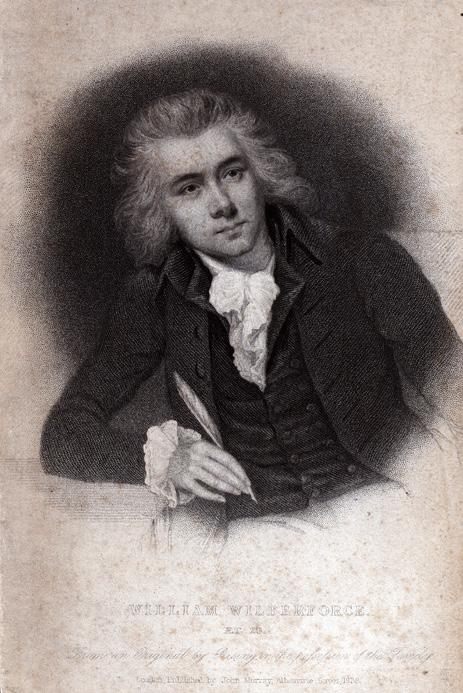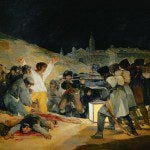
“Isaiah’s Lips Anointed with Fire” (Wikimedia Commons public domain image)
This new article appeared just after noon today (Utah time) in Interpreter: A Journal of Latter-day Saint Faith and Scholarship: “Adam Clarke and Isaiah in the Book of Mormon,” written by Kent P. Jackson
Abstract: A recent article alleges that in creating the Book of Mormon, Joseph Smith copied Isaiah passages out of the Bible commentary of Scottish theologian Adam Clarke. The author of the article alleges that while doing so, the Prophet edited those passages based on suggestions from Clarke’s cross references and commentary. This explains the differences between Isaiah in the King James translation and the corresponding Isaiah passages in the Book of Mormon. A careful analysis of the Isaiah verses in the Book of Mormon and Clarke’s commentary shows that this claim is not true.
And an accompanying piece has just appeared on the website of the Interpreter Foundation: “Interpreting Interpreter: Adam Clarke’s Isaiah,” written by Kyler Rasmussen
This post is a summary of the article “Adam Clarke and Isaiah in the Book of Mormon” by Kent P. Jackson in Volume 66 of Interpreter: A Journal of Latter-day Saint Faith and Scholarship. All of the Interpreting Interpreter articles may be seen at https://interpreterfoundation.org/category/summaries/. An introduction to the Interpreting Interpreterseries is available at https:/interpreterfoundation.org/interpreting-interpreter-on-abstracting-thought/.
A video introduction to this Interpreter article is now available on all of our social media channels, including on YouTube at https://youtube.com/shorts/dUKttF_KywU.
The Takeaway: Jackson discusses a recent proposal from Colby Townsend, who argues that Joseph Smith relied on Adam Clarke’s biblical commentary in the use of Isaiah in the Book of Mormon. Jackson reviews each alleged instance of borrowing, concluding that Townsend’s parallels are weak, both collectively and individually.

A call for paper proposals has just appeared. It’s for an Interpreter Foundation conference to be convened on 29-30 May 2026 on the campus of Brigham Young University: ““For a Wise Purpose in Him”: Perspectives on the Small Plates of Nephi (1 Nephi – Words of Mormon): A Conference on the Small Plates of Nephi in the Book of Mormon.” The conference will welcome a live audience as well as an online audience, and we anticipate that it will eventually result in a published anthology of the papers. Please mark the dates on your calendar. And, if you wish to propose a paper, we will welcome a submission from you.

Here’s something for my fellow Latter-day Saints in Idaho to seriously consider: “Inside the movement to make Idaho a ‘Christian State’ — and how that affects Latter-day Saints: Religious litmus tests in Idaho? How a powerful Idaho conservative group is changing the conversation” Members of the Church there who feel some sympathy for the movement should take a long pause to think about the possible ramifications if such a movement were somehow to succeed. Folks who like to talk about “Christian states” or about making America a “Christian nation” commonly don’t include us within their definition of “Christian.”
But this is good news — although I wouldn’t be surprised if the plaintiffs appeal the decision: “Judge guts lawsuit that sought to stop the Heber Valley Utah Temple: Barring an appeal, the Church of Jesus Christ looks forward to beginning construction, spokesman says”

(Photo from Wikimedia Commons public domain)
In the meanwhile, the rise of “respectable” anti-Semitism and even Holocaust-denial among certain elements on what some call the political Right horrifies me. I don’t know whether you’ll be able to access this article but, if you can, I hope and expect that you’ll be horrified, as well: “Tucker Carlson’s Dark Turn: He can’t stop talking about the Jews”
A survey of Carlson’s programming and rhetoric over the past several years . . . makes abundantly clear that he is indeed very much “obsessed” with Israel and the Jews. Carlson has devoted more time and attention to the Jewish state, which he portrays in a uniformly negative light, than to any other country in the world. He has suggested that Israel and its agents have been behind everything from the assassination of President John F. Kennedy to the promotion of “white genocide” to the deceased financier Jeffrey Epstein’s supposed entrapment of the world’s most powerful men via the trafficking of underage girls. To listen to Carlson’s show is to come away with the impression that Adolf Hitler was misunderstood, that Israel is a country systematically murdering Christians, and that American Jews compose a bloodthirsty fifth column bent on conscripting their Gentile countrymen to fight Israel’s wars.

Finally, this item comes squarely from the Christopher Hitchens Memorial “How Religion Poisons Everything” File™: I’ve just finished reading Amazing Grace: William Wilberforce and the Heroic Campaign to End Slavery (HarperCollins, 2007), by Eric Metaxas. I regret and am puzzled by some of the political positions taken by Mr. Metaxas in recent years, but he’s an excellent writer, and he tells the story of a very great man in a very readable way. I commend the book to your notice. Wilberforce’s campaign against the British slave trade (and not only against the slave trade but against permitting infanticide and the practice of suttee in British India and against cruelty and amorality in British public life) represents a series of remarkable moral achievements that were, yes, motivated to a very degree by his fervent Christian convictions. Where in contemporary American political life is his equal?
Posted from Richmond, Virginia












